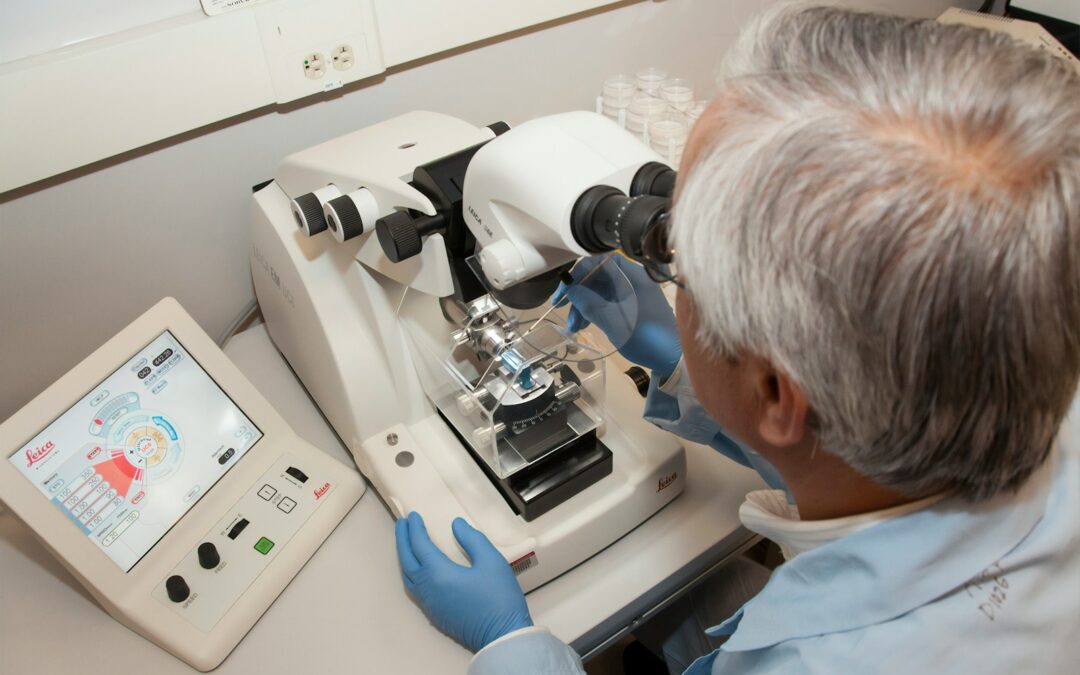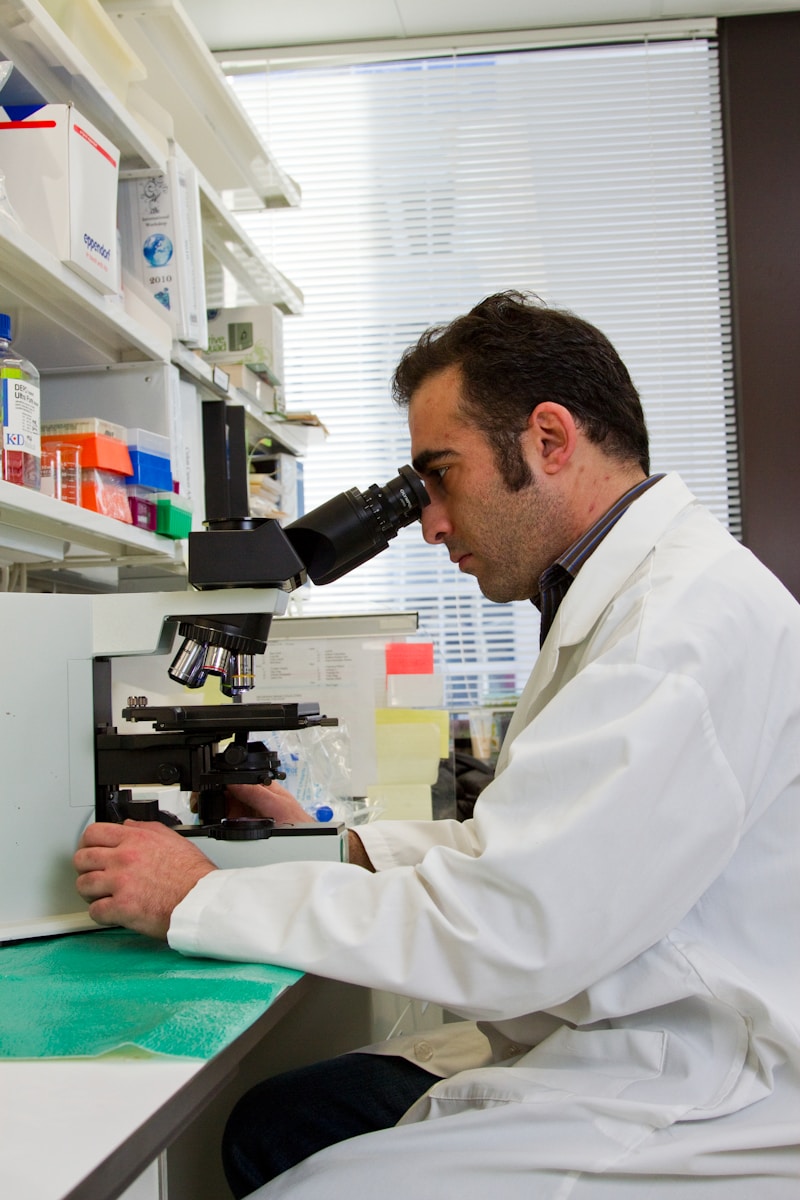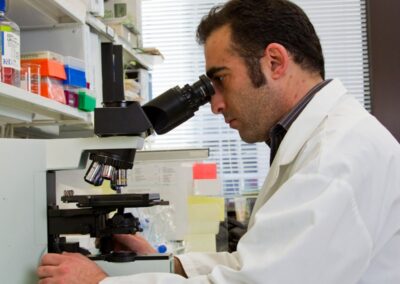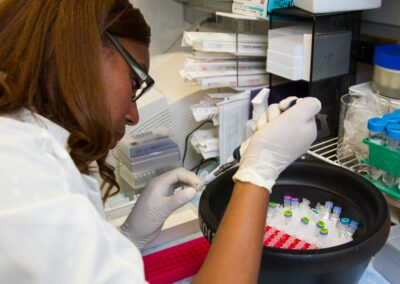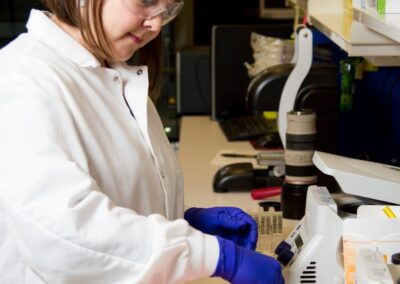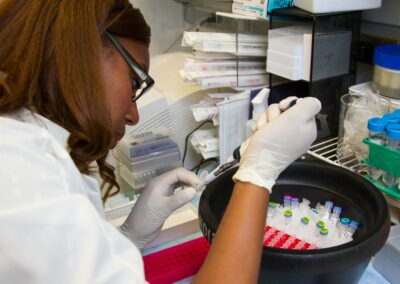Understanding Ethical Implications in Biotechnology
Ethical Considerations in Agricultural Biotechnology
Ethical considerations and regulatory challenges in biotechnology are critical topics as the industry advances rapidly. In agriculture, biotechnology offers immense potential for improving crop yields, enhancing nutritional value, and developing pest-resistant varieties. However, these advancements come with ethical questions regarding the impact on biodiversity, the safety of genetically modified organisms (GMOs), and the socioeconomic effects on farmers. In regions like Saudi Arabia and the UAE, where agriculture is vital yet challenging due to arid conditions, it is essential to balance technological benefits with ethical responsibility. Policies must ensure that biotechnological innovations do not lead to unintended consequences such as the loss of local crop varieties or increased dependence on proprietary seeds. A robust ethical framework should guide the development and deployment of agricultural biotechnologies, ensuring they are used responsibly and sustainably.
Ethical Issues in Medical Biotechnology
In the realm of medicine, the ethical considerations and regulatory challenges in biotechnology are equally significant. Medical biotechnology, which includes gene editing, stem cell research, and personalized medicine, has the potential to revolutionize healthcare by providing targeted and effective treatments. However, these technologies also raise ethical concerns about genetic privacy, consent, and potential misuse. For instance, gene editing technologies like CRISPR can potentially eradicate genetic disorders but also pose risks of off-target effects and ethical dilemmas surrounding germline modifications. In Saudi Arabia and the UAE, where there is a strong focus on advancing healthcare, developing comprehensive ethical guidelines is crucial. These guidelines should address issues of patient consent, data privacy, and equitable access to biotechnological treatments, ensuring that medical advancements benefit society as a whole while respecting individual rights.
Balancing Innovation with Ethical Responsibility
As biotechnology continues to evolve, balancing innovation with ethical responsibility becomes increasingly important. Business executives and entrepreneurs in Saudi Arabia and the UAE must navigate these complexities by adhering to ethical principles while driving technological advancements. This involves engaging with stakeholders, including ethicists, policymakers, and the public, to develop transparent and inclusive decision-making processes. By fostering an ethical culture within organizations and advocating for responsible biotech practices, leaders can ensure that their innovations contribute positively to society. Additionally, executive coaching services can support leaders in honing their ethical decision-making skills, enabling them to effectively address the ethical challenges inherent in biotechnological advancements.
Regulatory Frameworks for Agricultural Biotechnology
The ethical considerations and regulatory challenges in biotechnology extend to the creation and enforcement of robust regulatory frameworks. In agricultural biotechnology, regulations must ensure the safety and efficacy of GMOs while protecting environmental and public health. This involves rigorous testing and approval processes to assess the potential risks and benefits of new biotechnological products. In Saudi Arabia and the UAE, developing regulatory frameworks that align with international standards while addressing regional specificities is crucial. This includes implementing stringent biosafety protocols, conducting comprehensive risk assessments, and fostering transparency in the approval process. Effective regulation not only ensures the safe use of biotechnologies but also builds public trust and acceptance, which are essential for the successful adoption of innovative agricultural practices.
Regulatory Challenges in Medical Biotechnology
In the medical field, the ethical considerations and regulatory challenges in biotechnology are particularly complex due to the direct impact on human health. Regulatory bodies must establish clear guidelines for the development, testing, and commercialization of biotechnological treatments. This includes ensuring rigorous clinical trials, monitoring long-term effects, and safeguarding patient rights. For regions like Saudi Arabia and the UAE, where there is a strong emphasis on healthcare innovation, adopting comprehensive regulatory frameworks is imperative. These frameworks should facilitate the safe introduction of new medical technologies while addressing ethical concerns related to patient consent, data protection, and equitable access. By harmonizing regulatory standards with global best practices, these regions can foster a conducive environment for medical biotechnology advancements.
Strategies for Effective Regulation and Ethical Governance
To address the ethical considerations and regulatory challenges in biotechnology, it is essential to adopt proactive strategies that promote effective regulation and ethical governance. This involves continuous dialogue between regulators, industry stakeholders, and the public to develop policies that are both effective and responsive to emerging biotechnological trends. Capacity building in regulatory institutions, investment in research, and fostering international collaborations are key strategies for enhancing regulatory frameworks. In Saudi Arabia and the UAE, leveraging insights from global regulatory practices and tailoring them to regional contexts can ensure the successful governance of biotechnological advancements. By prioritizing ethical and regulatory considerations, these regions can harness the full potential of biotechnology to drive sustainable development and improve public health outcomes.
#BiotechnologyEthics #BiotechRegulations #AgriculturalBiotech #MedicalBiotech #EthicalBiotech #BiotechnologyAdvancements #RegulatoryChallenges #HealthcareInnovation #BiotechPolicy #SustainableBiotech

